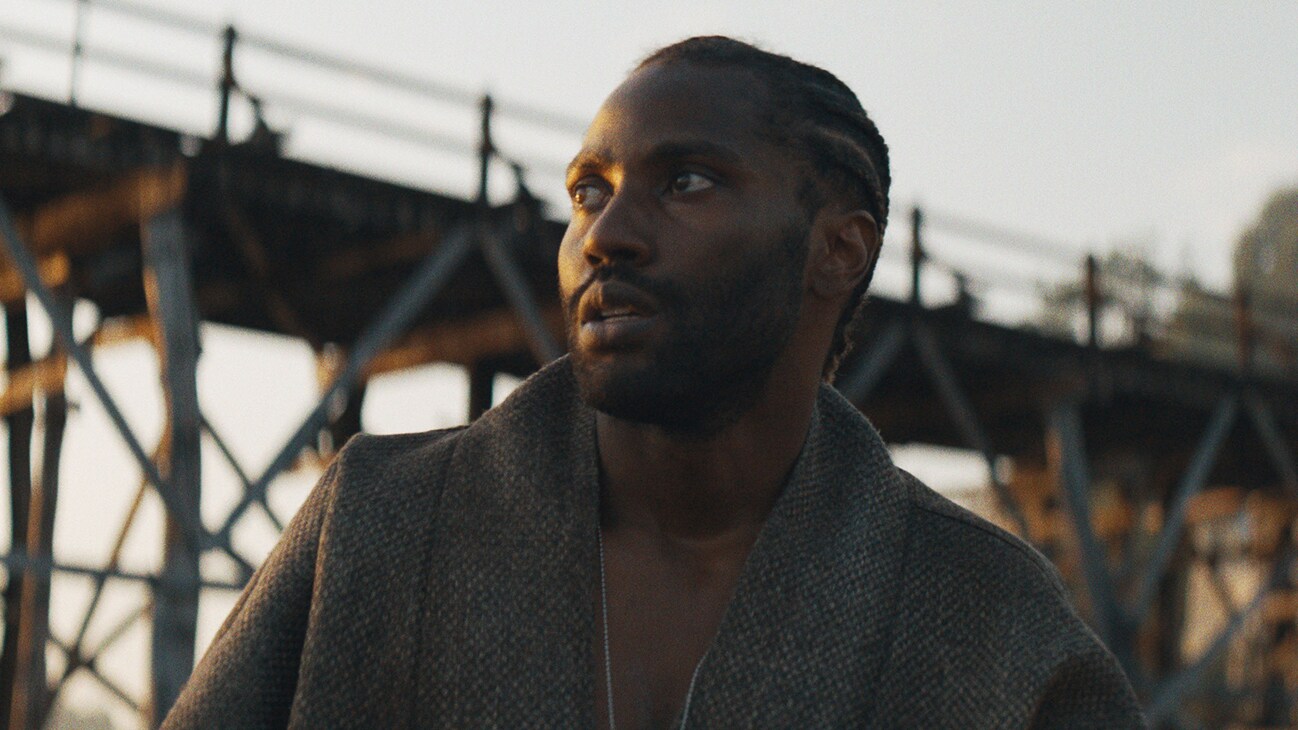Writer/director Gareth Edwards’ The Creator is more than a science fiction thriller about the hot-button topic of artificial intelligence—it’s a gripping story that delves deeply into many points, including loss, grief, PTSD, misinformation, and the human cost of war, particularly on children. And, ironically, this tale of sentient robots is the most touchingly human movie in recent memory.
An opening montage depicts how, in the near future, robots increasingly replace humans in countless jobs. But after A.I. nukes Los Angeles in the mid-21st century, America bans the technology, while the Republic of New Asia accepts Simulants as sentient beings.
America establishes an orbiting weapon platform, NOMAD, to seek out and bomb robotic colonies overseas, and U.S. Special Forces hunt for Nimrata, the creator of deadly advanced A.I. While working undercover to hunt down Nimrata, Special Forces agent Joshua (John David Washington) gets entangled in a raid gone wrong, which ends in the death of his pregnant wife Maya (Gemma Chan).
Years later, Special Forces enlists Joshua to help find the Creator and a superweapon he’s developing, enticing him with the promise of a reunion with Maya, who allegedly survived. They raid a hidden lab, where Joshua discovers this weapon of mass destruction is an outwardly benign android child (Madeleine Yuna Voyles), marked Alpha-Omega, that he nicknames Alphie. Disobeying orders to destroy Alphie, who knows Maya’s whereabouts, Joshua escapes with the android, and his commanding officer, Colonel Howell (Allison Janney), in hot pursuit. Gradually, he discovers that the Creator has wildly different intentions than he—and the Western world—understood or imagined.
The Creator is a somber, mature film, which makes it a rarity among current science fiction. It darkly observes humans’ innately warlike and xenophobic nature without becoming nihilistic or dreary. Surprisingly, it takes A.I.’s threat to humanity and flips the situation. It explores what would happen if this dehumanizing technology was benign: less like the murderous Skynet in the Terminator series and more inclined toward Isaac Asimov’s humane Three Laws of Robotics.
The Creator has been widely criticized for being derivative, which it undeniably is. It draws on, among other movies, Steven Spielberg’s A.I., Apocalypse Now, Akira, Terminator 2, and Blade Runner. The art of futurist Syd Mead is also an obvious influence. But Edwards’ worldbuilding remains impressive throughout, especially considering the film cost $80 million—a fraction of standard tentpole movies’ budgets. The visual effects are extraordinary, with Edwards fleshing out this future with memorable details and moments, like a briefly glimpsed android funeral pyre.
Edwards also imparts key information about this futuristic culture unobtrusively through dialogue, rather than halting the plot for clunky expository speeches—a common problem in science fiction cinema. It requires the audience’s attention—a sign of Edwards’ respect for his viewers.
If The Creator has any significant flaw, it’s Washington in the lead. Far less talented than his father, Denzel, he’s decent in this critical role, but a more nuanced actor could have delivered a superior performance. Otherwise, the cast is fine.
With its humanity, wit, and emotional potency, The Creator is a consistently intriguing, thoughtful, well-made film—the kind that even snobs that dismiss science fiction can appreciate.
The Creator
PG-13, 135 minutes
Alamo Drafthouse Cinema, Regal Stonefield, Violet Crown Cinema






